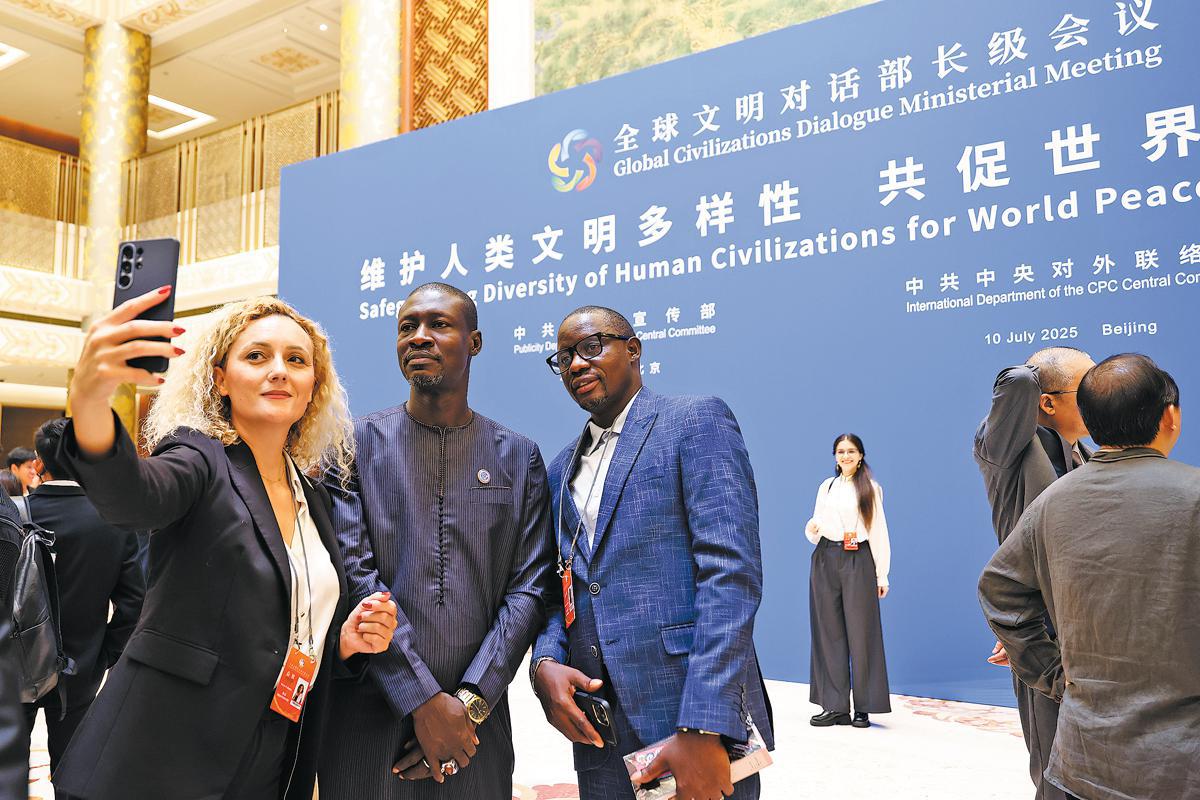More dialogue encouraged for peace, stability across Eurasia
Communication offers alternative to confrontation, says senior official


A senior official of the Communist Party of China emphasized on Thursday the importance of dialogue and communication among civilizations, calling for greater efforts to preserve peace across the Eurasian region.
"As we mark the 50th anniversary of diplomatic ties between China and the European Union, we hope to see a peaceful Eurasia," said Liu Jianchao, head of the International Department of the CPC Central Committee, when addressing the plenary session of the Global Civilizations Dialogue Ministerial Meeting in Beijing.
Located at two ends of Eurasia, China in the east and Europe in the west share the common goal of promoting peace and stability, Liu said.
"No matter where we are, we must work toward peace. Through civilizational dialogue and exchanges, we can begin to address the challenges facing us today," he added.
Liu emphasized the need for "more dialogue, less warfare", saying that dialogue fosters inclusiveness and mutual understanding, thereby offering an alternative to confrontation.
"China is willing to work with European countries and other nations in Eurasia to build trust, deepen cooperation on security, and jointly maintain lasting peace," he said.
The two-day ministerial meeting, themed "Safeguarding Diversity of Human Civilizations for World Peace and Development", started on Thursday and brought together more than 600 global policymakers, scholars and cultural leaders from around 140 countries and regions.
Carole Bureau-Bonnard, former vice-president of France's National Assembly, echoed the sentiment shared by Liu.
"In a diverse world, dialogue is not optional. It is a necessary condition for peace," she said. "But beyond dialogue, we must also draw from our own historical and cultural heritage to find solutions to the global challenges we face."
Bureau-Bonnard warned against the misuse of emerging technologies, particularly artificial intelligence, and underlined that technological advances should support shared cultural values rather than deepen social divides.
Former UNESCO director-general Irina Bokova praised China's role in proposing the Global Civilization Initiative. "This isn't just an initiative — it's a vision for a peaceful, harmonious world rooted in empathy and solidarity," she said.
Bokova, who is senior advisor to the Board of Directors of the Europe-Asia Center, highlighted the importance of cultural heritage in fostering mutual understanding, calling the UNESCO World Heritage list "an open book of humanity's diversity".
"We are all connected — by time, by culture, by heritage," she said. "When we understand our own culture, we become more tolerant of others. That is perhaps the most beautiful and essential idea we can share."




































